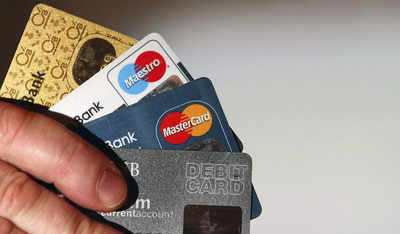Various studies have revealed that consumers tend to spend more when using credit cards compared to cash, especially during shopping seasons with enticing offers and discounts. However, excessive use of credit cards can have a negative impact on your creditworthiness, potentially lowering your CIBIL score, a crucial three-digit number used by lenders to assess your creditworthiness and determine interest rates for credit products.
It's essential to understand key aspects of credit card usage to maintain a healthy credit profile. Let's explore the relationship between credit card usage, credit scores, and financial transactions.
1. Credit Limit and Over-Limit Usage:
- Credit limit: This is the maximum amount you can spend on your credit card at any given time, designed to ensure you can repay borrowed money within a specific period without falling into debt. Credit limits are determined based on income, credit history, and creditworthiness.
- Credit over-limit: This happens when you use your credit card beyond the specified credit limit. While over-limit usage is allowed, it's subject to terms and conditions set by the issuer.
2. How Credit Card Usage Affects Your Credit Score:
- Repayment History: Your credit card repayment history significantly impacts your credit score, accounting for nearly 35% of it. Paying your credit card bills on time is crucial to maintaining a good credit score. Late payments result in higher interest and late fees.
- Credit Limit Utilization: High utilization, exceeding 70-80% of your credit limit, can negatively impact your credit score. It reflects an inability to manage spending, and banks may assume you have too much debt. Timely repayment is critical to maintaining and improving your credit score.
- Paying Minimum Due Amount: Paying only the minimum due amount doesn't adversely affect your repayment behavior, but it incurs interest and additional charges. Paying the full outstanding amount helps you avoid interest and charges.
- Credit Utilization Ratio (CUR): CUR indicates your credit card usage compared to the credit limit in a given month. A high CUR (above 30%) suggests credit-hungriness and can lower your credit score. It's advisable to stay below 30% and make timely full payments.
- Automated Payments: Setting up automated payments, even for the minimum amount, ensures you never miss due dates and helps maintain a good credit score.
- Avoid Multiple Credit Applications: Applying for multiple credit cards simultaneously can negatively impact your credit score. It's best to have no more than three active credit cards.
- Risk of Declined Transactions: Exceeding your credit limit results in declined transactions, and it's essential to monitor your balances for each card to avoid this issue.
- Opt for EMI: Credit cards often offer consumer-friendly EMI options, allowing you to convert transactions into manageable installments without negatively affecting your credit score.
3. Advantages of Using Credit Cards Responsibly:
- While excessive credit card usage can harm your credit score, responsible usage offers several advantages. These include earning reward points, enjoying interest-free EMIs, accessing discounts, and taking advantage of festive offers. Credit cards come with predefined credit limits, so you can use them for daily expenses and repay within the stipulated time.
In conclusion, understanding how credit card usage impacts your credit score and financial transactions is crucial. By using credit cards wisely and maintaining timely payments, you can leverage their benefits without compromising your creditworthiness.





.jpg)
